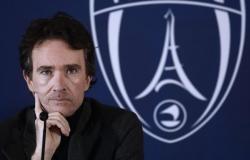Several sources attest to the participation of North Korean special forces in the Kursk region, and their disregard for international rules of conflict. An unofficial co-belligerent presence, since denied by Moscow, which if confirmed, would mark a new escalation of the conflict, with major geopolitical consequences.
On December 12, 2024, some Russian social networks reported the apparent involvement of North Korean special forces in a military operation in Plekhovo, a village in the Sudja district of the Kursk region, Russia. According to the reputedly reliable Telegram channel of war correspondent Romanov Light, in particular, North Korean troops carried out the assault autonomously, described as having “ swept the area like a hurricane, taking no prisoners ».
The operation reportedly caused more than 300 deaths among Ukrainian forces. This version was corroborated by Oleg Tsarev, a former Ukrainian MP now aligned with Russian interests, and confirmed by Lenta, a pro-Putin mainstream Russian media outlet.
Ukrainian President Volodymyr Zelensky himself confirmed the information two days later: “ There are reports that the Russians have begun using soldiers from North Korea – in notable quantities – in assaults. They are integrating them into combined units and are currently only using them in operations in the Kursk region. But we have information claiming that they could be used in other parts of the front ».
READ ALSO: “The commanders have a lot of blood on their hands”: in Kursk, the anger and exhaustion of Ukrainian soldiers
A major escalation
If the information proves correct, this intervention would mark a major escalation in Pyongyang's involvement in the Russian-Ukrainian conflict, raising crucial legal and geopolitical questions. The direct participation of North Korean special forces in the fighting would represent a dramatic intensification of Kim Jong-un's support for Russia.
Until now, he was accused of supplying weapons, logistical assistance and manpower to Moscow. However, the participation of its troops in clashes on the ground “ would constitute an unprecedented level of engagement, firmly aligning it with the Russian military campaign”estimates Professor of International Relations at the American Graduate School in Paris Anton Koslov.
If these reports are accurate, North Korea's actions in Plekhovo would constitute an act of aggression against Ukraine, in violation of the United Nations Charter. Even more worrying are suspicions that North Korean troops refused to take prisoners, constituting a serious violation of international humanitarian law (IHL).
The Geneva Conventions require humane treatment of prisoners of war (POWs) and prohibit violence or executions of surrendering combatants. Although North Korea is not a signatory to the Geneva Conventions, their principles are considered customary international law, binding on all states.
READ ALSO: “As long as it’s not Moscow, Putin doesn’t care”: the flight of Kursk residents after the Ukrainian offensive
Isolation
The Rome Statute of the International Criminal Court (ICC) also classifies such acts as war crimes. Even if Pyongyang is not a member, it could be held responsible for these violations of international humanitarian law. According to the Articles on Responsibility of States for Internationally Wrongful Acts (ARSIWA), a State is responsible for unlawful acts committed by its armed forces. This includes potential war crimes, such as refusing to take prisoners or violence against unarmed combatants.
If North Korean troops acted under Russian command or with Moscow's approval, Russia could also be held responsible under international law. Although no official statement has been made, the involvement of North Korean forces in fighting against Ukraine could be interpreted as a de facto declaration of war. Article 51 of the United Nations Charter considers any armed attack by one state against another to be a justification for the right of self-defense.
By deploying troops to fight Ukrainian forces, Pyongyang is directly engaging in the conflict. Its participation, especially if it is accompanied by violations of IHL, places it in the category of belligerent parties to the conflict. If confirmed, the Plekhovo operation would be the first proven case of North Korean troops fighting on Russian soil, and would represent a turning point in the war in Ukraine, introducing new risks and uncertainties.
READ ALSO: Ukrainian incursion into the Kursk region in Russia: the “boomerang effect” which is putting the Kremlin at bay
Historical precedents, such as Chinese “volunteers” during the Korean War, show how foreign interventions can exacerbate conflicts and blur lines of responsibility.
For the international community, this development signals an even closer rapprochement between Moscow and Pyongyang, further isolating them on the world stage. For Russia, this highlights a growing reliance on foreign forces to maintain its war effort. For Ukraine, this represents a significant escalation, with the arrival of a new adversary in an already complex conflict. Beyond the immediate implications on the battlefield, this event carries profound legal and geopolitical consequences.
North Korea's direct engagement not only raises questions about compliance with international law but also reflects the increasingly global nature of this conflict. If the participation of North Korean troops is confirmed, it could constitute an implicit declaration of war, regardless of the diplomatic framework given by Pyongyang or kyiv. Because formal declarations are not necessary to define a conflict. “ It is the facts on the ground that trace the contours of the war and its consequences », concludes Professor Anton Koslov.






